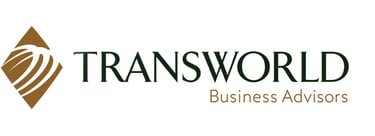How Brokers Handle Negotiations for Maximum Sale Price?
Learn how business brokers in Orlando navigate negotiations to achieve the highest sale price and secure favorable deals for sellers.
10/28/20254 min read


When a business owner decides to sell, the difference between leaving money on the table and achieving the highest possible sale price often hinges on negotiations. A business broker in Orlando plays a pivotal role in bridging the gap between seller expectations and buyer offers. Negotiation is more than just haggling over numbers; it is a structured process that combines market insights, psychology, strategy, and timing to achieve the best outcome.
Establishing the Initial Position
Before any discussion begins, brokers help sellers set a realistic but ambitious asking price. This is not merely a figure pulled from a spreadsheet; brokers rely on detailed market analysis, historical performance of the business, and comparable sales in the region. Positioning the business properly ensures that initial offers start within a range that leaves room for negotiation.
A skilled broker takes the following steps to establish a strong starting point:
Market Analysis: Comparing similar businesses recently sold in Orlando to gauge a competitive price.
Financial Review: Assessing revenues, profits, and cash flow to justify the asking price.
Highlighting Strengths: Emphasizing unique selling points, such as proprietary processes, customer loyalty, or prime location.
Anticipating Buyer Objections: Preparing answers for potential concerns buyers may raise.
By clearly defining the value and backing it with objective data, brokers create a position from which negotiation can be both confident and flexible.
Strategic Communication with Buyers
Negotiation is largely psychological. Brokers act as intermediaries to manage communications with potential buyers, preventing emotional reactions that could undermine the sale.
Key communication strategies include:
Active Listening: Understanding buyer motivations and priorities, whether they are price-sensitive or focused on long-term growth potential.
Framing Offers: Presenting counteroffers in a way that emphasizes mutual benefit rather than confrontation.
Managing Expectations: Explaining market realities and setting realistic boundaries to prevent lowball offers from taking root.
Maintaining Professionalism: Avoiding overly aggressive tactics that could derail discussions.
By controlling the flow of information and framing conversations effectively, brokers guide buyers toward decisions that align with the seller’s objectives.
Tactical Negotiation Methods
Negotiation often involves multiple rounds of offers and counteroffers. Brokers employ a combination of analytical and interpersonal tactics to maximize sale price:
Anchor Point Strategy: Starting with a higher but reasonable asking price, which psychologically positions the business as valuable.
Incremental Concessions: Giving small, calculated concessions to encourage reciprocity from the buyer.
Highlighting Alternatives: Showing buyers that there is market competition can create urgency and strengthen the seller’s leverage.
Timing the Counteroffers: Waiting strategically before responding to offers to project confidence and control.
Non-Monetary Incentives: Negotiating terms such as transitional support, warranties, or payment structures that add perceived value without reducing price.
These strategies, when executed skillfully, ensure that the final deal maximizes both financial outcomes and contractual advantages.
Managing Emotional Dynamics
Emotions can cloud judgment during negotiations. Sellers may feel anxious about leaving money on the table, while buyers may try to exploit perceived weaknesses. Brokers act as a buffer, keeping discussions professional and objective.
Preventing Impulsive Decisions: Brokers provide data-driven advice that discourages rushed concessions.
Conflict De-escalation: Mediating disagreements before they escalate into deal-breaking disputes.
Maintaining Seller Confidence: Offering reassurance through market evidence and negotiation progress updates.
By managing these emotional dynamics, brokers preserve the integrity of the process and protect the seller’s interests.
Leveraging Market Timing
The timing of negotiations can significantly affect the sale price. Brokers monitor local market trends, buyer demand, and economic factors to decide when to present offers or push for closing.
Seasonal Market Fluctuations: Certain times of the year may attract more qualified buyers, creating competitive tension.
Economic Conditions: Interest rates, inflation, and industry-specific trends can influence buyer behavior.
Strategic Pauses: Sometimes delaying a response can generate additional offers or encourage higher bids.
Timing combined with strategic positioning can transform an ordinary negotiation into a highly profitable outcome.
Closing the Deal
Negotiation does not end until the final contract is signed. Brokers ensure that all terms, contingencies, and conditions are clearly defined to avoid post-sale disputes.
Critical steps in closing include:
Contract Review: Ensuring all negotiated terms are accurately reflected.
Contingency Management: Addressing potential issues like financing, inspections, or regulatory approvals.
Final Price Validation: Confirming that the agreed price aligns with the seller’s expectations and market valuation.
Smooth Transition Planning: Facilitating handover details to preserve business continuity and buyer confidence.
A meticulous closing process guarantees that the negotiated advantages translate into a tangible, enforceable outcome.
Real-Life Application
Consider a mid-sized health food business in Orlando. A seller may receive an initial offer below expectations. A broker in Orlando would first assess the buyer’s motives, emphasizing the value of the brand, loyal customer base, and profitable growth trajectory. They may counteroffer strategically, highlight competing buyers interested in the business, and offer favorable transition support. By carefully timing responses and framing concessions, the final sale price could exceed the original asking price, illustrating the power of professional negotiation.
Common Challenges Brokers Overcome
Negotiating high-stakes deals is rarely straightforward. Brokers regularly navigate challenges such as:
Overconfident Buyers: Who may undervalue the business based on incomplete information.
Conflicting Interests: Multiple buyers or stakeholders with diverging priorities.
Complex Financials: Businesses with irregular cash flows or unique revenue streams.
Market Volatility: Shifts in the local economy or industry trends affecting buyer confidence.
Each challenge requires a tailored strategy, combining analytical rigor with interpersonal skill, ensuring that the seller’s bottom line remains the focus.
Conclusion
Maximizing a business sale price is as much an art as it is a science. A business broker in Orlando functions as a strategist, advocate, and negotiator, leveraging market knowledge, communication skills, and timing to secure optimal outcomes. From initial positioning to final contract execution, every decision is calibrated to protect the seller’s interests while extracting the highest possible value. Those who engage skilled brokers often find that professional negotiation transforms a routine sale into a financial milestone.


